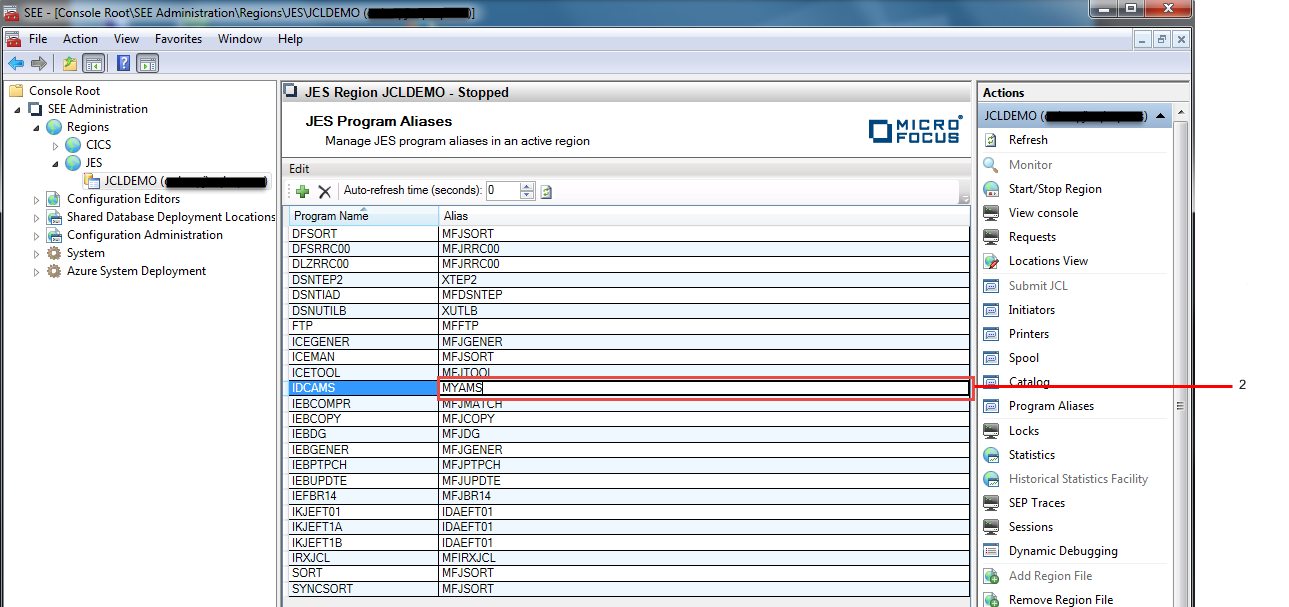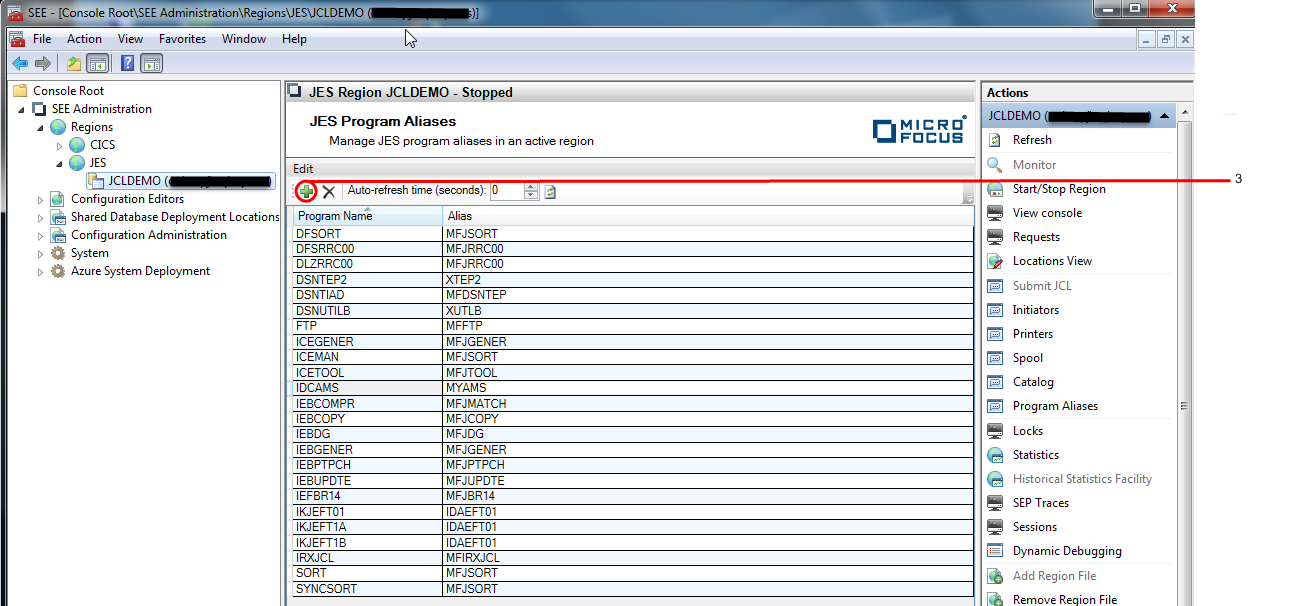To Administer Program Aliases in a Running JES Region
The aliases being used by a region will have been defined in the region start-up file and created during a cold-start. The
Enterprise Server for .NET Administration UI is used to view these definitions. You can add additional entries to this list, or change existing entries so that your own
programs are used instead of the
Enterprise Server for .NET defaults. To do this:
-
Select a JES region from within the
Enterprise Server for .NET Administration UI, and click
Program Aliases in the
Action pane. See
1 in the diagram below. The
Program Aliases view is displayed in the
Results pane.

-
To change the name of the program aliased to a mainframe utility, double-click the alias name and enter the name of the program
that you want it to be aliased to instead. See
2 in the diagram below. For example, to change the alias for the IDCAMS utility from the default MFJAMS to MYAMS:

Clicking away from the alias name in the grid will update its value.Note: Modify entries with extreme caution, as doing so may result in application failure. -
To add a new program/alias definition:
-
Click
Add. See
3 in the diagram below.

The Define Program Alias dialog is displayed. -
Enter the name of the utility program that you are defining in the
Program name field, and the name of the program that it is to be aliased to in the
Alias name field.

-
Click
OK to dismiss the
Define Program Alias dialog and complete the creation of the definition. The newly created definition is displayed in the
Results pane. See
4 in the diagram below.

-
Click
Add. See
3 in the diagram below.
-
You can remove a program/alias pair that you have added by selecting the item in the grid and hitting the
delete key.
Note: Delete entries with extreme caution, as doing so may result in application failure
Any changes made in this view are immediately applied to the region, but only get picked up by jobs that subsequently go
into execution. Jobs currently in execution are not affected by these changes. The changes will be persisted across warm-starts,
but will be lost when the region is cold-started unless you have made the corresponding changes to the region start-up file.